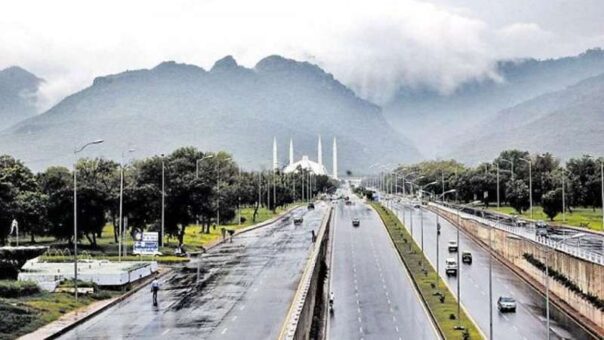Islamabad, January 27, 2025 – The Pakistan Meteorological Department (PMD) forecasts that Islamabad and its surrounding regions will experience cold and dry weather over the next 24 hours.
Temperatures are expected to remain low, contributing to a chilly atmosphere throughout the day and night.
The PMD further stated that Islamabad and its neighboring areas would continue to face cold and dry conditions on Monday, January 27, 2025. On Tuesday, January 28, 2025, the weather in Islamabad is predicted to stay cold and dry during the day, with cloudy skies likely to develop during the night.
At the national level, continental air continues to dominate most parts of the country, maintaining the cold and dry spell across Pakistan.
Monday’s Weather Forecast:
The PMD anticipates mainly cold and dry conditions across the country, with very cold weather persisting in hilly areas during the night. Islamabad will share similar weather patterns with the rest of the country, where the chill is likely to remain prominent.
Tuesday’s Weather Outlook:
Tuesday is expected to bring a continuation of cold and dry weather nationwide, including Islamabad. However, hilly regions in Upper Khyber Pakhtunkhwa, Gilgit-Baltistan, and Kashmir might see a change with partly cloudy conditions, accompanied by light rain or snowfall and gusty winds during the evening and night. Islamabad, while cold and dry during the day, could see some cloud cover at night.
Past 24 Hours:
Cold and dry weather dominated most parts of the country in the past 24 hours, with hilly areas remaining exceptionally cold. Islamabad experienced similar conditions, consistent with the national pattern.
Lowest Recorded Temperatures (°C) Today:
The lowest minimum temperatures were recorded in Leh (-12°C), followed by Gupis and Skardu (-10°C), Astore (-9°C), Hunza, Gilgit, Bagrote, Kalam (-5°C each), and Quetta (-4°C).
Residents of Islamabad and surrounding areas are advised to dress warmly and take necessary precautions against the cold, particularly during nighttime and early morning hours.
